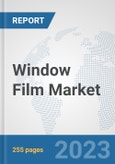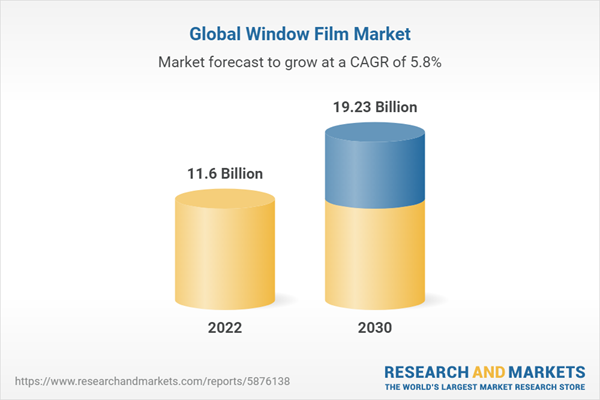The window film market is set to experience robust growth driven by a confluence of factors that address both practical and aesthetic concerns. Furthermore, advancements in window film technology have led to the creation of films that not only provide effective UV protection but also enhance the visual appeal of buildings and vehicles. Stricter regulations pertaining to energy efficiency and safety standards are propelling the integration of window films into various applications. Additionally, the growing awareness of the damaging effects of UV radiation on human health is fostering the demand for protective window films that safeguard individuals and interiors alike. As urbanization and infrastructure development continue, the market is likely to experience sustained expansion, with a significant emphasis on incorporating innovative window film solutions to meet evolving consumer and industry needs.
The sun control films segment has emerged as a significant revenue driver in the window film market, a trend expected to persist throughout the forecast period. These films play a pivotal role in limiting the intrusion of external heat sources, thereby enhancing overall comfort levels, conserving energy consumption, and ensuring the protection of residential and commercial spaces. By effectively addressing issues like glare, fading, and high air conditioning costs, sun control films offer a holistic solution. Notably, they extend the lifespan of interior furnishings while acting as a barrier against the harmful effects of UV radiation on human skin. These films boast a remarkable capacity to reduce solar heat penetration by up to 78%, leading to substantial reductions in air conditioning usage. Simultaneously, they contribute to energy conservation by reflecting 35% of rooftop heat. As the importance of energy efficiency gains traction, the widespread adoption of sun control films in residential, commercial, and automotive sectors continues to grow. Owing to its effectiveness and applications, the demand for the sun control window film is expected to be high in the projected period.
North America generated a substantial share of revenue in the window film market and is expected to hold it over the forecast period. The United States is home to renowned window film manufacturers, such as Avery Dennison Corporation, and 3M which are one of the leading manufacturers in the global market. These manufacturers contribute to the overall growth of the North America window film market. The ongoing expansion of the automotive, industrial, and construction sector in North America are the key driver for the dominance of North America in the global market. North America has often been at the forefront of implementing regulations and standards related to building codes, safety, and energy efficiency. These regulations could encourage the adoption of window films to meet certain requirements. The North America region experiences varying climates with both hot and cold seasons, owing to this climatic change in North America the demand for window films that provide insulation and climate control is high in this region.
Report Findings
1) Drivers
- Growing focus on energy savings and environmental concerns boosts demand for window films.
- The increasing need for privacy and security drives the adoption of window films, further propel the market growth.
2) Restraints
- Window film's upfront expenses, especially for larger projects, can hinder adoption in cost-sensitive markets.
3) Opportunities
- Evolving technologies like smart films present chances for innovative solutions in sun control and privacy, attracting tech-savvy customers.
Research Methodology
A) Primary Research
The primary research involves extensive interviews and analysis of the opinions provided by the primary respondents. The primary research starts with identifying and approaching the primary respondents.The primary respondents are approached include
1. Key Opinion Leaders2. Internal and External subject matter experts
3. Professionals and participants from the industry
The primary research respondents typically include
1. Executives working with leading companies in the market under review2. Product/brand/marketing managers
3. CXO level executives
4. Regional/zonal/country managers
5. Vice President level executives.
B) Secondary Research
Secondary research involves extensive exploring through the secondary sources of information available in both the public domain and paid sources. Each research study is based on over 500 hours of secondary research accompanied by primary research. The information obtained through the secondary sources is validated through the crosscheck on various data sources.The secondary sources of the data typically include
1. Company reports and publications2. Government/institutional publications
3. Trade and associations journals
4. Databases such as WTO, OECD, World Bank, and among others.
5. Websites and publications by research agencies
Segment Covered
The global window film market is segmented on the basis of type, material type, and application.The Global Window Film Market by Type
- Sun Control Films
- Decorative Film
- Safety & Security Film
- Privacy Film
- Others
The Global Window Film Market by Material Type
- Vinyl
- Polyester
- Plastic
- Ceramic
- Others
The Global Window Film Market by Application
- Automotive
- Building & Construction
- Marine
- Others
Company Profiles
The companies covered in the report include- AVERY DENNISON CORPORATION
- 3M
- Garware Suncontrol Film
- Saint-Gobain
- LLumar South Africa (Pty) Ltd.
- Madico, Inc.
- Recon Blinds
- HAVERKAMP
- Eastman Chemical Company
- LINTEC Corporation
What does this Report Deliver?
1. Comprehensive analysis of the global as well as regional markets of the window film market.2. Complete coverage of all the segments in the window film market to analyze the trends, developments in the global market and forecast of market size up to 2030.
3. Comprehensive analysis of the companies operating in the global window film market. The company profile includes analysis of product portfolio, revenue, SWOT analysis and latest developments of the company.
4. Growth Matrix presents an analysis of the product segments and geographies that market players should focus to invest, consolidate, expand and/or diversify.
Table of Contents
Companies Mentioned
- AVERY DENNISON CORPORATION
- 3M
- Garware Suncontrol Film
- Saint-Gobain
- LLumar South Africa (Pty) Ltd.
- Madico, Inc.
- Recon Blinds
- HAVERKAMP
- Eastman Chemical Company
- LINTEC Corporation
Table Information
| Report Attribute | Details |
|---|---|
| No. of Pages | 255 |
| Published | August 2023 |
| Forecast Period | 2022 - 2030 |
| Estimated Market Value in 2022 | 11.6 Billion |
| Forecasted Market Value by 2030 | 19.23 Billion |
| Compound Annual Growth Rate | 5.8% |
| Regions Covered | Global |
| No. of Companies Mentioned | 10 |









